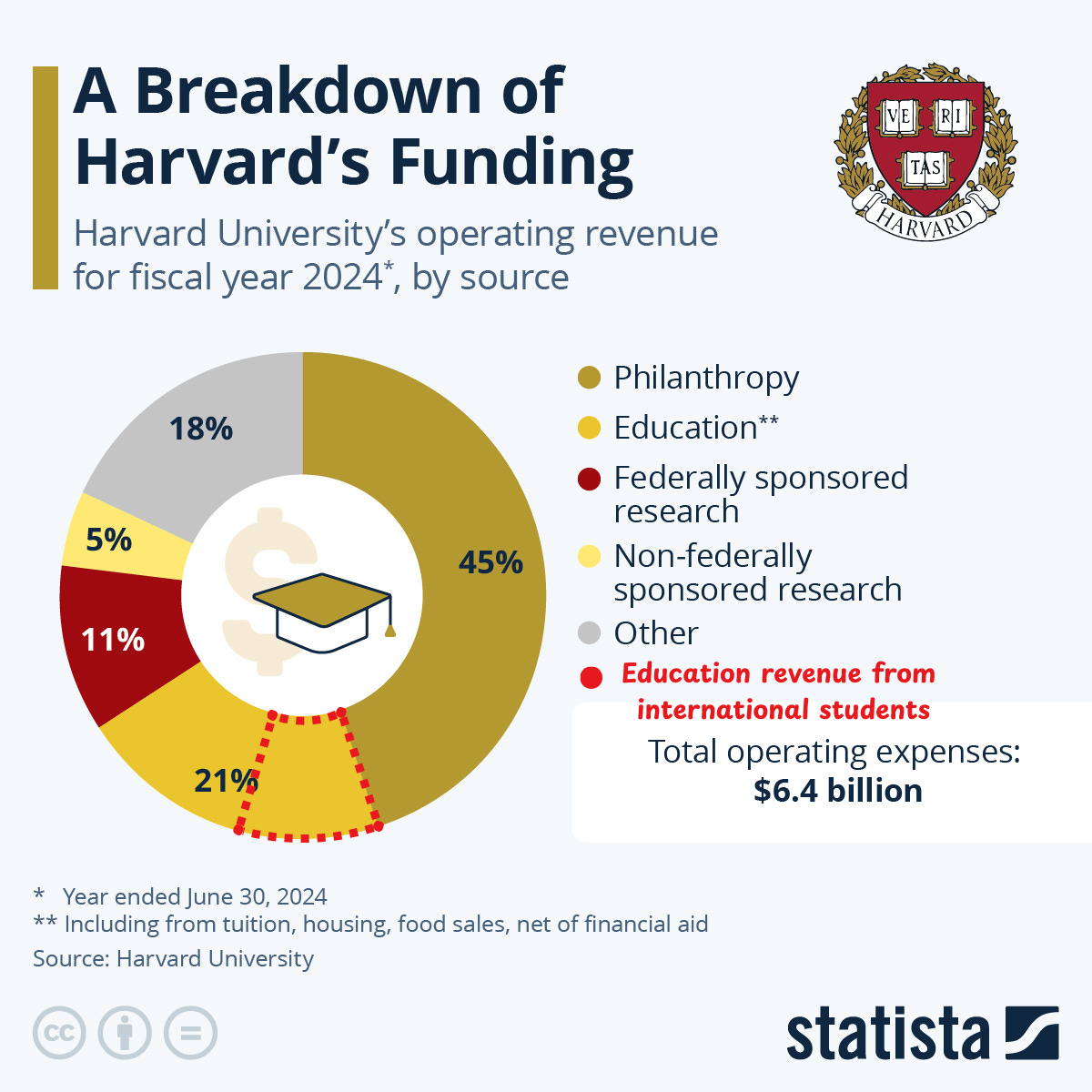I Went to Harvard With the World’s Brightest. As of today, They’d Be Denied Entry.
As a student and professor, I’ve seen firsthand how much international students enrich American universities, and what we lose when we shut them out.
Hi, I’m Jamaal. Welcome to Jamaal’s Letter, where I share personal reflections, insights, predictions, and strong opinions on the future of markets, work, business, tech, and more.
The people who read this newsletter are the people who run the world. If you aren’t yet a subscriber, consider joining them by subscribing below. Please share it with your friends and colleagues if you find it helpful:
When I was a student at Harvard, more than half of my classmates were international. They were, without question, among the smartest and most accomplished people I'd ever met.
In a dramatic escalation of its ongoing dispute with Harvard, the Trump administration has revoked the university’s certification to enroll international students, effective immediately. This move, announced by the Department of Homeland Security, means Harvard can no longer admit new international students, and that thousands of current international students must either transfer to other institutions or risk losing their legal status in the United States. The administration cited concerns over campus safety, allegations of antisemitism, and purported ties to the Chinese government as reasons for the action. This decision impacts nearly 7,000 international students, over a quarter of Harvard’s student body, and threatens a crucial source of both revenue and global talent for the university.
As a university professor, I've taught several hundred students over the years. More than 90% of them have been from outside of the United States. This experience has given me a front-row seat to understand just how critical these students are to American higher education, both financially and culturally.
International Students are “Cash Cows”
International students have become the financial lifeblood of universities' tuition revenue streams. They are disproportionately from wealthy families and pay full tuition with fewer scholarships and less financial aid available to them. In essence, they're universities' cash cows.
Consider Harvard's finances:
The university generates roughly $1.4 billion in revenue, about 21% of total revenue, from students in the form of tuition, housing, fees, and food.
International students represent roughly 27% of the total student population, but because they pay significantly more on average, they likely generate as much as 40% of student-derived revenue.
A dramatic reduction in international student enrollment could represent as much as a $500 million hit to Harvard's finances alone.
Universities Are Critical to the Pro-Immigration Case
The financial impact, significant as it is, pales in comparison to what this means for university culture, American culture, and American competitiveness more broadly.
The current assault on higher education—including policies that make it harder for international students to study and remain in the United States—undermines our technological, scientific, and economic competitiveness. More fundamentally, it undermines America's ability to attract some of the brightest, hardest-working, and most ambitious people on the planet.
We're not just losing tuition revenue. We're losing the next generation of innovators, entrepreneurs, and leaders who have historically chosen to build their futures here.
America built its dominance by being the place where the world's best and brightest wanted to come. We're throwing that advantage away, one visa restriction at a time.
I’ve previously made the case for an unapologetically pro-immigration debate in our political discourse. Universities are a critical component of actualizing that case.
There needs to be an unapologetically pro-immigration argument in our political discourse.
In the aftermath of a U.S. presidential election and a raging online debate about H1-B visas, I’ve wondered where the pro-immigration case is being made.
Perhaps I’m missing it, but it feels like:
- One side: "Immigration is bad."
- The other side: "Immigration isn’t as bad as you think."
The truth: Immigration is overwhelmingly positive.
In the U.S., immigrants:
- founded 45% of Fortune 500 companies
- are 2x as likely to start companies
- make up roughly 1 in 4 STEM workers
Immigrants also dramatically enrich our cultures, language, food, etc.
The U.S. is home to more foreign-born residents than any other country. In a world where “demography is destiny,” we’re incredibly fortunate to be where many people want to live. That doesn’t have to be the case.
There are ~40 countries with shrinking populations. On average, their GDPs are growing nearly a full percentage point lower than those of countries with growing populations. Talk to someone living in one of those countries.
Some research suggests that removing immigration borders worldwide would DOUBLE the global GDP.
This isn’t to say there isn’t more nuance in how our immigration should work in the U.S. Lawmakers have failed for decades to agree on a comprehensive plan to fix a system everyone agrees is broken.
Where is the full-throated pro-immigration case?
I just recently wrote about Harvard’s government defiance and its broader leadership crisis.





